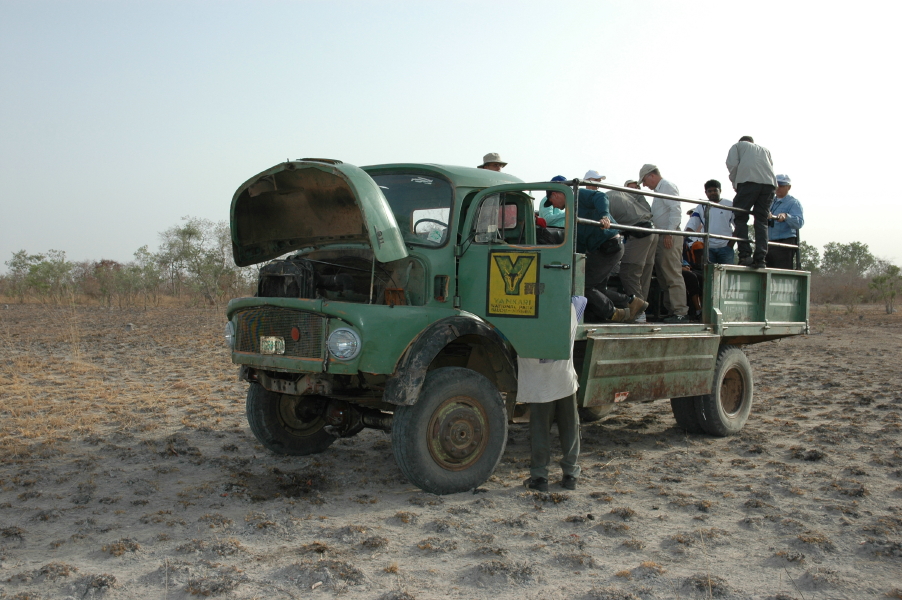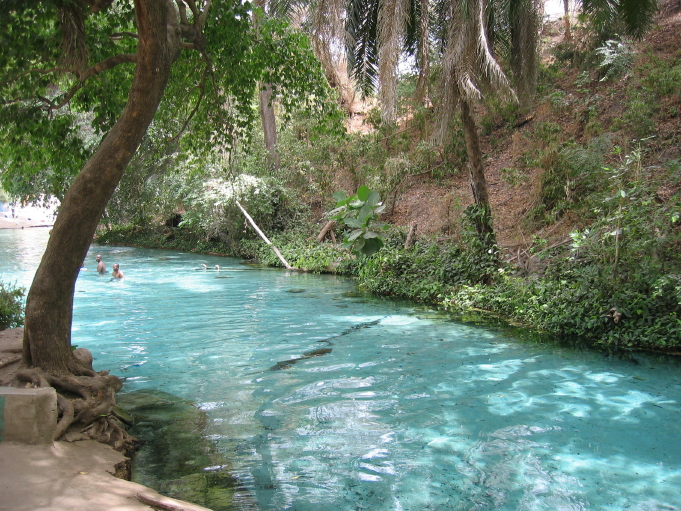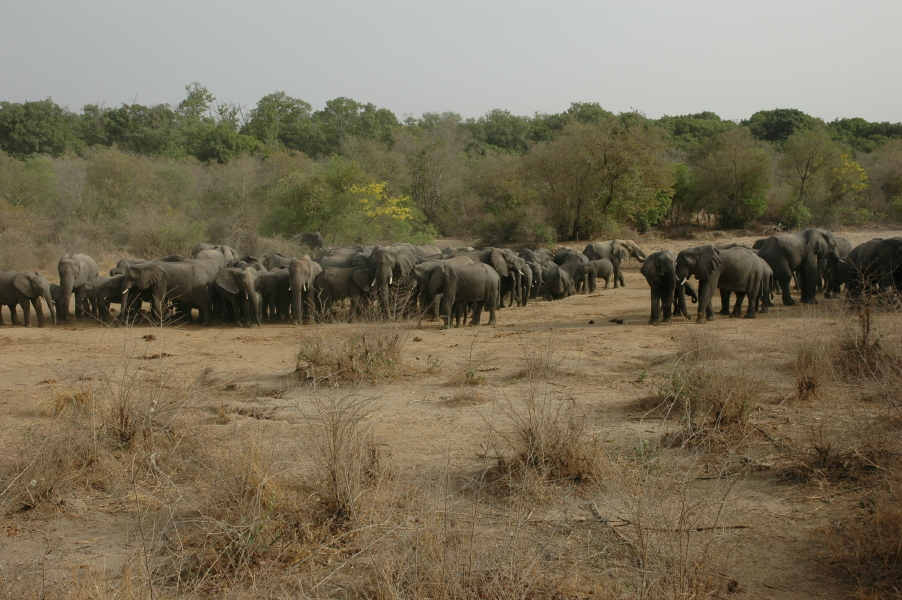Trip to: Yankari National Park
Date: 17 to 19th March 2006
Trip organizer: Phill Hall, John Barker
Trip report: Mike Newton
The trip to Yankari National Park was always going to popular as it provides one of Nigeria’s most rewarding wildlife destinations. Twenty six people joined the 0715 flight from Lagos to Abuja and then joined the bus for the long nine hour drive up and across the Jos Plateau to Yankari.
Yankari is 225km east of Jos in Plateau State; the park is 2,200 square kilometers in size and provides good game viewing in the first few months of the year as the dry season forces the animals to congregate at the river. Phil Hall had gone up the day before and arranged the park fees camera permits and accommodation. The accommodation in the Park Headquarters was basic and very cheap but some what dilapidated after years of neglect, but this was a party of hardy travelers that was here for the park and not running water and cold beer. Baboons and warthogs were found running around the accommodation which consisted of circular huts called rondavels.
The next morning we met at first light at 5.30am for tea and coffee and departed on the truck at 0600 hours. This ancient 10 ton vehicle was fitted with benches that provided a great elevated viewing platform. It was still dark as we watched a Powershute take off from the small runway and soar into the sky, carrying a pilot and a spotter. This craft is flown in still air conditions and is used to monitor the animal movements in the park. The craft was provided by the Leventis Foundation who also trained pilots. Animals were scarcer in the mornings in Yankari as the animals are still in the savanna; they migrate around midday towards the river area as they see water and shade. On our first morning we still managed to see some warthogs, duiker, crocodile, baboons, tantalus monkey and a herd of waterbuck. The waterbuck (see picture) are a large shaggy antelope, long in the torso with short legs, this group of 7-8 was a bachelor herd, the main herd of females being led by the prime male. We stopped a couple of times, and went walking. First we hiked down to the river where one of the warm springs entered the river and the second time to explore the sandstone Marshall caves. Tiny pipistrelle bats were found in the caves (see picture), from markings on the walls and bits of pottery found in them, the caves were once occupied by hunters. The birdlife was fantastic with the following sighted,
Great White Egrets, Helmeted Guineafowls, Purple Glossy Starlings, African Jacanas (Lily-Trotters), Wattled and Spur-winged Plovers, and an Open-bill Stork, White-headed Vultures, Palm-Nut Vulture, Senegal Parrots, Red Throated Bee-Eater, Rollers, African Grey Hornbill and Red-Billed Hornbill, Fish Eagle, Grey Headed Kingfisher, Pied Kingfisher, The Open Billed Stork at around 95cm tall made an imposing site sitting on a tree in the middle of the river, while the colours of the Kingfishers delighted all.
The other reason for visiting Yankari is the Wikki warm springs, we headed off there after the morning game drive, the mineral springs are warm at 31 degrees C in a delightful woodland setting. The water bubbles up into a pool at the base of a cliff and provided 200 metres of delightful bathing. Divers have explored 9 meters back under the cliff finding a number of caverns. A few of the party had to return later that night, there are floodlights, what a place! It was easy to lie there for a long periods of time, it was hard to find a reason to leave the warm and restful waters.
On the afternoon game drive we were rewarded with finding a herd of elephant about 150 strong, there are now around 450 elephant in the park, making this the largest number in any game park in West Africa. We found them in the riverine area crossing a river and were subjected to a number of mock charges before leaving these magnificent animals. On returning to the camp we saw two poachers who had just been captured illegally hunting, they had shot a waterbuck with a dane gun.
That night we dined in the restaurant again, the food was simple, cheap and ok. Tip: take some red wine with you.
The game drive the following morning started again at 6am, we soon found elephant close to the camp. Again we stepped down from the vehicle (see picture) and walked along the river looking for hippo, no luck but it was nice to walk by the river. This time we found waterbuck, warthogs, western hartebeest, monkeys and baboon. There are about 50 lions in the park and we knew we would be very lucky to see any. A male was suddenly spotted on the river bank, however the delighted squeals spooked him and he ran from our view. On back tracking however in the bush we discovered about 5-6 lionesses. The vultures were circling overhead indicating a recent kill in the area, this was a real treat and a great end to our Yankari trip.
We left Yankari at 10am and arrived at Abuja tired and happy, with time for a cool beer before the flight to Lagos.
Thanks to Phil Hall and John Barker for organizing the trip, a memorable one.
Trip participants were as follows:
Mike Newton, Phil and Caroline Hall, Laurent and Katani Courderc, Andre and Barbara De_Leebeek, Steve Dobbs, Steve Brown, Jean-Paul and Katherine Genoud, Vivian Neglia, Thomas Ricke, Lindie Rudover, Jacques & Michelle Vauthier, Marc Zivny and Dr Joseph Zivny, Roselle Campiti (and 3 children), Naaudo Buford and Wolfgang Stoegermayer, Arend and Akkie DeRoo.




